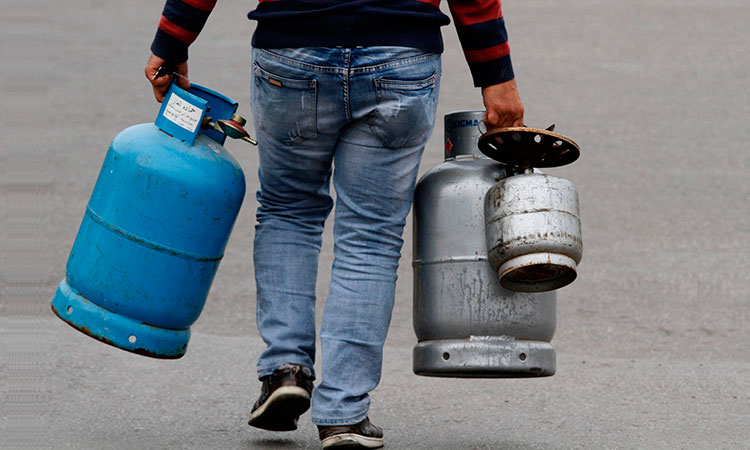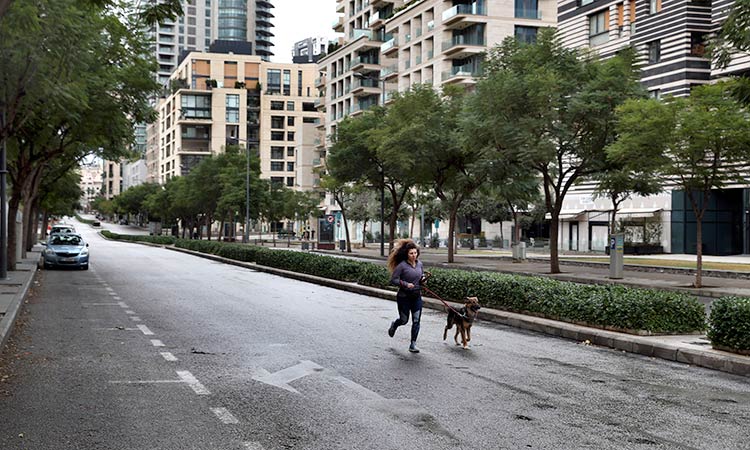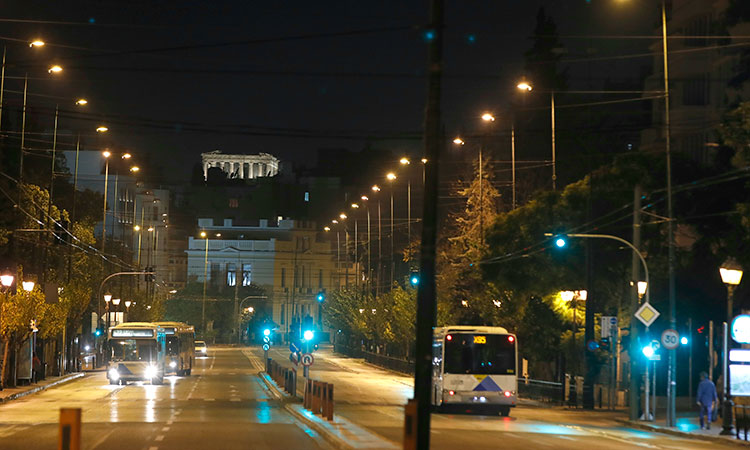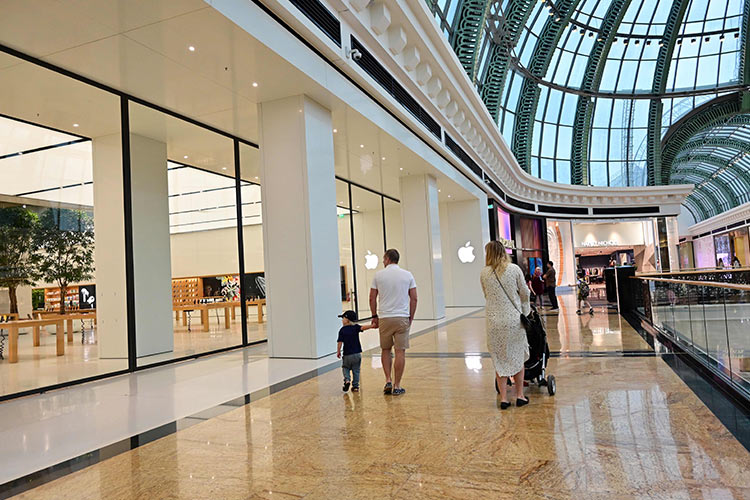Lebanon begins all-day curfew to stem coronavirus uptick
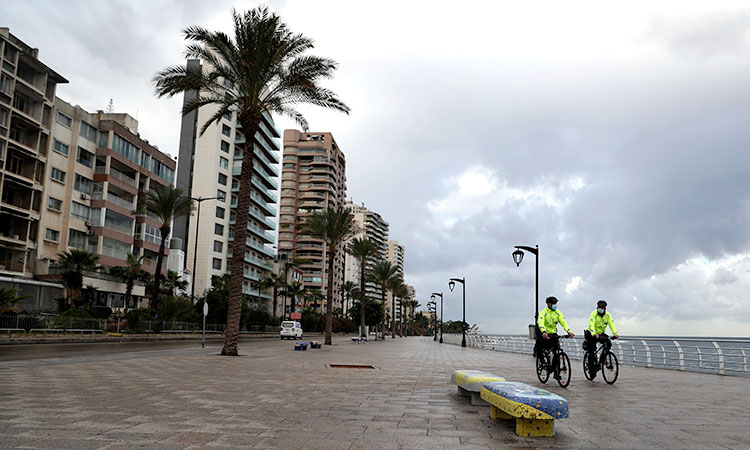
Police bike officers patrol an area in Beirut as the country starts a new lockdown on Thursday. Bilal Hussein/AP
Gulf Today Report
Lebanese hunkered down indoors on Thursday as authorities began enforcing an 11-day nationwide shutdown and round the clock curfew on Thursday, in a bid to slow down a sharp uptick in novel coronavirus cases.
For the first time, residents were required to request a one-hour permit to be allowed to leave the house for "emergencies, hoping to limit the spread of coronavirus infections spinning out of control after the holiday period.
READ MORE
WHO team arrives in China's Wuhan to investigate COVID-19 origins
UAE Ministry of Health to increase number of COVID-19 vaccine centres
Get vaccinated Sheikh Mohammed and Sheikh Mohamed Bin Zayed tell residents
The country has enforced the heightened restrictions, a 24-hour curfew until January 25, including going to the bakery, pharmacist, doctor, hospital or airport.
A man carries gas cylinders in Sidon as the Lebanese rush to stock up before a total lockdown. AFP
In the capital, a trickle of trucks and cars ventured out onto the roads on Thursday, after state media reported caretaker health minister Hamad Hasan was admitted to hospital for treatment for Covid-19 the previous evening, according to the Associated Press.
Authorities came under pressure to take a tougher approach after the country's hospitals ran out of beds with daily infections reaching an all-time high of 5,440 cases last week in the country of nearly 6 million people.
Even before the coronavirus, Lebanon was going through an unprecedented economic and financial crisis that has seen its national currency and bank sector collapse and locked depositors out of the savings. Hospitals, long considered among the best in the Middle East, struggled to pay staff, keep equipment running and secure necessary medical supplies as dollars grew scarce.
A woman runs with her dog in an almost empty street during a lockdown in Beirut, Lebanon, on Thursday. AP
Amid the surge, many hospitals have now reached maximum capacity for coronavirus patients. Some have halted elective surgeries as they run out of beds, oxygen tanks and ventilators.
Furthermore, the country has been without a government since the old one resigned in the wake of the catastrophic Aug. 4 explosion at Beirut port, which put a further strain on hospitals, inundating them with injured. At least three hospitals were destroyed.
The massive explosion caused by the detonation of a stockpile of poorly stored ammonium nitrate ravaged the city, killing over 200 people and injuring thousands.